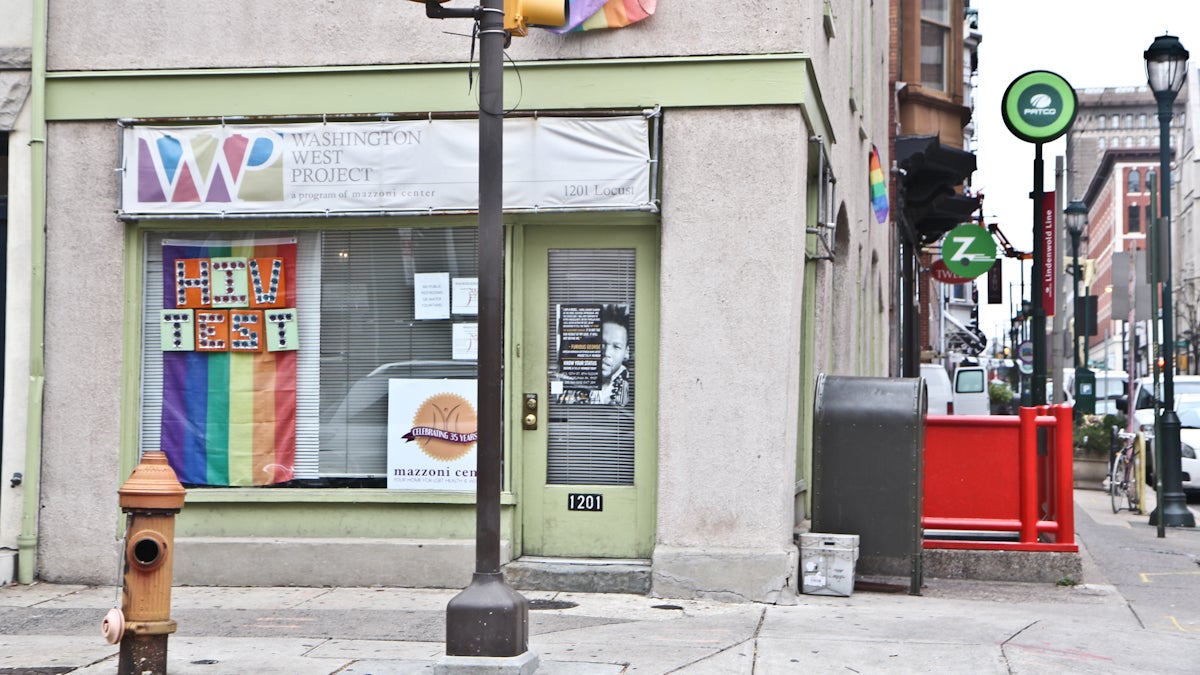Is HIV/AIDS registry stifling testing, or getting people services they need?

An HIV testing center in Philadelphia. (Kimberly Paynter/WHYY)
Fierce privacy laws surrounding most medical information in the United States is designed to ensure that diagnoses and treatment stay between doctors and their patients.
But unbeknown to most Americans, the state and local governments keep a list of names of everyone diagnosed with HIV/AIDS, a disease with a historic stigma that arguably makes privacy more critical than any other ailment.
Some advocates believe these methods, known as “HIV/AIDS surveillance” in medical terminology, may have negative impacts beyond stoking privacy fears.
Put into effect in Philadelphia 10 years ago at the urging of the Centers for Disease Control and Prevention, HIV/AIDS is one of more than 150 communicable medical conditions — including rabies and hepatitis — tracked through federally mandated names-based registries. But opponents of modern surveillance methods say few other disease carry the same privacy fears as HIV/AIDS.
“There’s a tremendous amount of stigma around HIV, folks think they may lose their rights or lose their jobs, they don’t know what their rights are,” said Ronda Goldfein, director of the AIDS Law Project. “We tell people to get tested, but the first thing we do after they get tested is submit their names to the government, and the government may come and talk to you about your partners.
“Some people, understandably, they need to take more of a baby-step approach.”
It works like this: Care providers collect the names of individuals who test positive for the HIV/AIDS to a registry maintained by the city’s Health Department. From there, the names make their way to the state and, eventually, an encrypted version of the data is sent to the CDC.
Because the CDC doles out funding to care providers based on the reports, most clinics have an incentive to report names in order to get the money they need to offer lifesaving services.
Goldfein and the ACLU fought the CDC’s attempts to introduce the AIDS registry locally in 2004, pushing for an alternative numbers-based identification system that would have allowed for anonymous testing.
They lost.
Today, while all screenings are confidential, once commonplace anonymous testing sites have largely disappeared in Philadelphia as more care providers have fallen in line with federal requirements.
“We see less support for anonymous testing. If you call almost all of the AIDS service organizations in the area, they’re not offering it anymore,” she said.
Studies by the National Institute for Health have also found that while most people with HIV are unaware names registries exist, a small number of those who do avoid screening out of fear their name will be reported.
Many of these studies conclude that the small number of people turned off by names reporting are not significant enough to offset the benefits provided by names reporting. And many at local HIV/AIDS clinics agree.
“One in five people don’t know their status, Philadelphia is a city where there is a lot of people living with HIV and we know that because of the data that is reported. Without any of that identifying information we don’t know who that person is to connect them to services, we can’t get people medical care or case management services,” said Terry Clark, prevention services coordinator at Action AIDS, while downplaying privacy issues.
While noting Pennsylvania’s registry had never suffered a breach of confidentiality, Clark said she’d like to see more work done to combat the fears behind testing, rather than tearing down surveillance tools.
“Names reporting, in my experience, has not been a prevailing reason why people don’t get tested. It really has to do with the stigma around living with HIV the criminalization that comes a lot of times with folks that are HIV positive,” she said.
But Goldfein wasn’t sure that society could afford to wait for those fears to dissipate.
“We can’t say all right, we’re done with stigma, and we’re going to do that on the backs of everyone living with HIV,” she said. “People are afraid. We can’t simply say they shouldn’t be and that’s good enough.”
WHYY is your source for fact-based, in-depth journalism and information. As a nonprofit organization, we rely on financial support from readers like you. Please give today.

